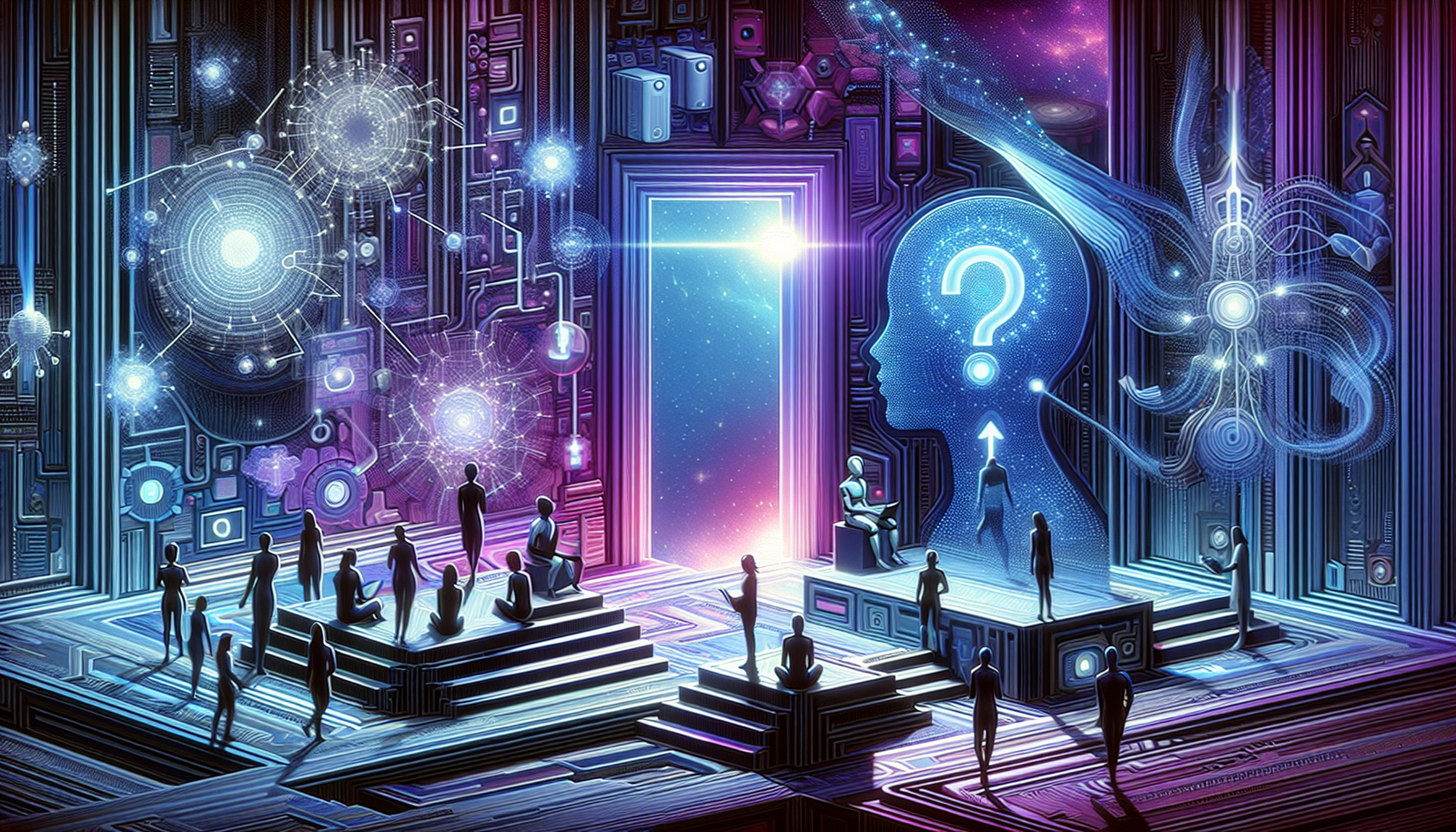AOC sharply interrogates the omnipresent impact of artificial intelligence on our contemporary society. Written by philosophers, sociologists, and legal scholars, the contributions reveal complex ethical and anthropological issues. This first quarterly issue calls for a rethinking of our certainties regarding human identity, creativity, and our free will. The reflections suggest that collective intelligence could transcend the limits imposed by machines. The initiative of Sylvain Bourmeau opens the debate on new paths to consider in the face of the emergence of AI.
AOC interrogates the universe of artificial intelligence
The publication of AOC, founded by journalist Sylvain Bourmeau, is now moving towards print with a tirade on artificial intelligence (AI). The first issue of this quarterly journal examines the sociopolitical and philosophical repercussions of AI, captivating the minds of a wide range of researchers. Philosophers, sociologists, and political scientists delve into this theme, providing stimulating and essential reflections.
Critical reflections on AI
At the heart of the debate is a striking article co-written by Alexandre Gefen and Philippe Huneman, two eminent researchers from CNRS. They tackle the challenges that AI poses to contemporary philosophy, questioning our conceptions of reality, art, and responsibility. One of the fundamental questions concerns the changes in personal identity and agency of human beings in the face of this emerging technology.
The contrast between AI and human intelligence
Upon the initial publication of this journal, AOC presented two editorials side by side: one written by ChatGPT and the other by Bourmeau himself. This confrontation illustrates the limited capabilities of AI. The AI’s text appears as smooth and disembodied prose, while Bourmeau’s reflects the richness of collective intelligence. This contrast raises an existential question: can we truly rely on AI to grasp such complex themes?
Responses to societal challenges
The reflections in this journal extend far beyond simple philosophical considerations. They address the anthropological, ethical, and cultural consequences generated by AI. The articles discuss how AI is redefining the professional and creative landscape, raising questions about evolving skills and the new challenges that arise.
A look at the artistic world
AOC does not fail to address the impact of AI in the artistic field. With the emergence of tools capable of producing artworks, crucial questions arise around intellectual property and the authenticity of creations. How can artists navigate this new ecosystem? The debates on the subject are lively and varied.
The imminent robotization
Companies are increasingly investing in robotization projects, raising new issues for workers. The frontier of innovation is expanding, and technologies are advancing by leaps and bounds to redefine many sectors. The reflections on robotics intersect with those on AI in analyzing human efforts to adapt to rapid changes.
In this regard, AOC’s article prompts readers to contemplate the implications of artificial intelligence on their daily lives. Technological advancements bring both opportunities and challenges, echoing a series of issues already raised in recent works. For an exploration of the impact of AI on creative professions, you can read this article.
An ongoing debate about the future
The birth of this journal marks a significant step in the dialogue surrounding emerging technologies. The stakes are becoming more complex, and the world of AI has become a vast terrain for ethical, political, and cultural questioning. Current discourses, fueled by the works of experts and intellectuals, highlight varied perspectives. The discussions promise to evolve, and the AOC journal aims to remain at the heart of this dynamic.
To delve deeper into the theme of video games powered by artificial intelligence, exploring this article could be revealing.
Frequently asked questions about AOC and artificial intelligence
What is the main objective of the AOC journal regarding artificial intelligence?
The AOC journal aims to explore the anthropological, ethical, and cultural upheavals provoked by artificial intelligence through a selection of articles written by experts across various fields.
Who are the main contributors of the articles on artificial intelligence in AOC?
The articles are written by philosophers, sociologists, political scientists, legal scholars, and other specialists, in order to provide a multidisciplinary perspective on the issues raised by artificial intelligence.
How does AOC address the challenges posed by AI to philosophy?
AOC examines the impacts of artificial intelligence on our concepts of reality, free will, and personal identity, prompting deep reflections on our agency and the nature of our existence.
Why did AOC choose to publish a print journal on artificial intelligence?
Although the media began as a digital ideas daily, AOC decided to turn to print to offer a different and more sustainable reading experience while enriching the public debate on contemporary issues.
What are the main themes addressed in the first issue dedicated to AI?
This issue covers various themes such as the ethical questions surrounding artificial intelligence, its cultural applications, and its social implications, thus providing a global reflection on its impact on our daily lives.
In what way is the publication of editorials by artificial intelligences, like ChatGPT, significant for AOC?
The juxtaposition of editorials written by an AI and a human author highlights the fundamental differences between human and algorithmic creation, while questioning our definitions of intellect and creativity.
How can readers access the AOC journal?
Readers can find the AOC journal in kiosks or subscribe online to access all articles and exclusive content, including those related to artificial intelligence.
Does AOC plan to publish more issues dedicated to AI in the future?
Although the first issue has recently been published, AOC promises to further explore questions related to AI in its upcoming editions, thereby enhancing the debate on this crucial subject.






